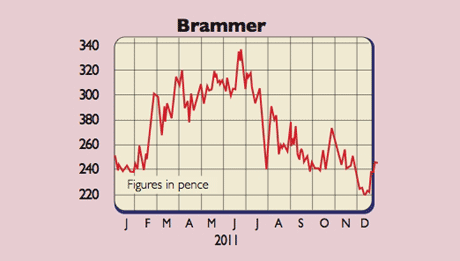Get the latest financial news, insights and expert analysis from our award-winning MoneyWeek team, to help you understand what really matters when it comes to your finances.
You are now subscribed
Your newsletter sign-up was successful
Want to add more newsletters?

Twice daily
MoneyWeek
Get the latest financial news, insights and expert analysis from our award-winning MoneyWeek team, to help you understand what really matters when it comes to your finances.

Four times a week
Look After My Bills
Sign up to our free money-saving newsletter, filled with the latest news and expert advice to help you find the best tips and deals for managing your bills. Start saving today!
Here's an upbeat prediction for you the worst of the European debt crisis will be solved within six months. That might sound hopelessly optimistic, but believe it or not, it's a real possibility.
Last Thursday, a €7.5bn issue of new shares from Italy's largest bank, Unicredit, flopped. This means other challenged banks are now locked out of the equity markets, at a time when they've been told to raise €115bn in fresh capital. The banks now have little option but to go cap in hand to their governments.
But they can't afford to bail them out without support from the European Central Bank (ECB). To avert economic disaster, the German chancellor, Angela Merkel, will have to allow the ECB to begin printing money (quantitative easing QE). And when it does, it'll be great news for stocks such as Brammer, which have been punished as investors fret about their exposure to the single currency area.
MoneyWeek
Subscribe to MoneyWeek today and get your first six magazine issues absolutely FREE

Sign up to Money Morning
Don't miss the latest investment and personal finances news, market analysis, plus money-saving tips with our free twice-daily newsletter
Don't miss the latest investment and personal finances news, market analysis, plus money-saving tips with our free twice-daily newsletter
Brammer is a pan-European distributor of industrial components largely bearings, seals, tools and power transmission systems. It derives 70% of its business from the continent, and the rest from Britain. Its specialist parts it offers an unrivalled range of 4.3 million products are essential to about 100,000 customers (including EDF Energy, Heinz and Kraft) for keeping factories running.
Already the biggest player (with a 3% market share) in a €25bn industry, it operates 300 service centres in 15 countries. These are complemented by 244 onsite teams, whose staff handle all aspects of a customer's spares and stores management. That builds robust barriers to entry for competitors.
In the four months to October, sales per working day rose 14.6%, helped by cross-selling initiatives and £60m-worth of new accounts secured in 2011. Brammer also spent £27.6m buying British peer Buck & Hickman in September, which should deliver £7.5m a year in cost savings in due course.
Brammer Group (LSE: BRAM), rated a BUY by Peel Hunt

Chief executive Ian Fraser aims to lift earnings before interest, tax and amortisation (EBITA) margins from 5.6% now to 8% over the medium term. The City expects revenue and earnings per share (EPS) of £567m and 19.6p respectively for 2011, rising to £718m and 25.8p in 2012. I value the stock on a prospective EBITA multiple of ten (assuming 6% margins). Adjusted for net debt of £45m, a £13.7m pension deficit and £7.8m of deferred payment on the recent purchase, I get an intrinsic worth of 300p a share.
Brammer is not recession-proof. Sales tumbled 10% in 2009 as demand dropped in cyclical areas, such as automotive and construction. But reassuringly, cash flow rose by a similar amount. Currency issues need watching too, although most of its debt load is denominated in euros and therefore hedged by its large volume of European sales. Broker Peel Hunt has a price target of 400p. Preliminary results are due out in February.
Rating: BUY at 240p (market cap £280m)
Get the latest financial news, insights and expert analysis from our award-winning MoneyWeek team, to help you understand what really matters when it comes to your finances.
Paul gained a degree in electrical engineering and went on to qualify as a chartered management accountant. He has extensive corporate finance and investment experience and is a member of the Securities Institute.
Over the past 16 years Paul has held top-level financial management and M&A roles for blue-chip companies such as O2, GKN and Unilever. He is now director of his own capital investment and consultancy firm, PMH Capital Limited.
Paul is an expert at analysing companies in new, fast-growing markets, and is an extremely shrewd stock-picker.
-
 Can mining stocks deliver golden gains?
Can mining stocks deliver golden gains?With gold and silver prices having outperformed the stock markets last year, mining stocks can be an effective, if volatile, means of gaining exposure
-
 8 ways the ‘sandwich generation’ can protect wealth
8 ways the ‘sandwich generation’ can protect wealthPeople squeezed between caring for ageing parents and adult children or younger grandchildren – known as the ‘sandwich generation’ – are at risk of neglecting their own financial planning. Here’s how to protect yourself and your loved ones’ wealth.